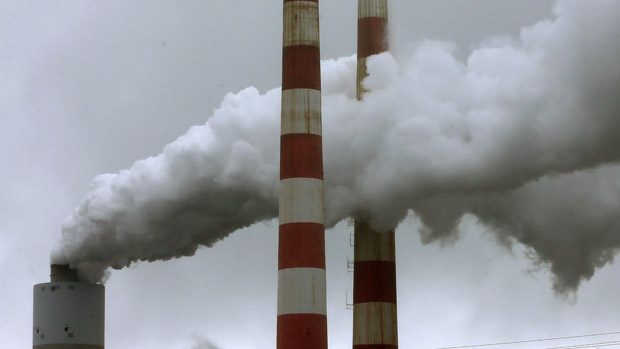Ten steps to 'tackle climate change and grow economy'
UN-backed report claims reducing emissions can generate better growth than a high-carbon model

A free daily email with the biggest news stories of the day – and the best features from TheWeek.com
You are now subscribed
Your newsletter sign-up was successful
Lower carbon emissions can be achieved at the same time as strong economic growth, according to a climate change report by a commission of global leaders.
The year-long study was conducted by several research institutes across the world, including the UN and the International Monetary Fund. The report, which was chaired by the former president of Mexico Felipe Calderón and co-authored by Lord Stern, has been published ahead of a UN summit of world leaders on global warming next week.
'Better Growth, Better Climate: the New Climate Economy' argues that major structural and technological changes in the world economy mean that economic growth and climate action are compatible.
The Week
Escape your echo chamber. Get the facts behind the news, plus analysis from multiple perspectives.

Sign up for The Week's Free Newsletters
From our morning news briefing to a weekly Good News Newsletter, get the best of The Week delivered directly to your inbox.
From our morning news briefing to a weekly Good News Newsletter, get the best of The Week delivered directly to your inbox.
"Reducing emissions is not only compatible with economic growth and development – if done well it can actually generate better growth than the old high-carbon model," Lord Stern tells The Guardian.
A high-carbon economy is likely to spend $6 trillion a year on infrastructure across transport, energy, water systems and cities over the next 15 years, the report found. But it claimed that by adopting the following recommendations this could be reduced to $270 billion a year.
The commission recommends that governments, businesses and financial institutions:
1. Include climate risk management in their core business strategies. For example, businesses should include climate risk analysis and their greenhouse gas emissions in their mainstream financial reports.
A free daily email with the biggest news stories of the day – and the best features from TheWeek.com
2. Enter a "strong, lasting and equitable" international climate agreement to create the confidence needed for global investment in carbon reduction. Governments should set clear greenhouse gas emission targets for the next ten years, with a global goal of achieving annual greenhouse gas emissions of near zero or below in the second half of the century.
3 Phase out the $600bn subsidies spent on fossil fuels, with government support for affected industry workers.
4 Introduce "strong, predictable" carbon prices as part of fiscal reform strategies.
5 Substantially reduce the capital cost of low-carbon infrastructure investment. For example, national development banks should stop financing high-carbon projects, except when there are no viable alternatives, and instead provide finance for low-carbon and climate-resilient infrastructure.
6 Remove barriers to entrepreneurship in low-carbon technology. Governments should triple their energy-related research and development spending by the mid-2020s and countries should work together to create "potentially game-changing technologies".
7 Develop "connected and compact" cities built around mass public transport rather than expanding into rural areas. The report says this could reduce urban infrastructure financial requirements by more than $3 trillion over the next 15 years.
8 Stop the deforestation of natural forests by 2030, with companies committing to eliminating deforestation from their supply chains by 2020.
9 Restore at least 500 million hectares of degraded forests and agricultural land, bringing it back into full productive use by 2030. This could generate $35bn in farm incomes, feed up to 200 million people and help store around one billion tonnes of CO2e a year.
10 Accelerate the shift away from coal-fired power generation, with all countries aiming to phase out unabated fossil fuel power generation by 2050. Instead, governments should steer energy sector investments towards renewable energy sources, energy efficiency improvements and other low-carbon alternatives.